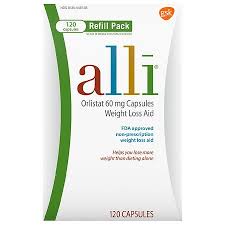
Exploring Over-the-Counter Appetite Suppressants
Over-the-counter (OTC) appetite suppressants are a popular choice for individuals looking to manage their weight and control their food cravings. These supplements are designed to help reduce hunger, increase feelings of fullness, and ultimately support weight loss efforts.
How Do OTC Appetite Suppressants Work?
OTC appetite suppressants work in various ways to help curb your cravings and reduce your overall caloric intake. Some supplements contain ingredients that target specific hormones in the body responsible for regulating hunger, while others work by increasing the levels of neurotransmitters that promote feelings of fullness.
Key Ingredients in OTC Appetite Suppressants
Common ingredients found in OTC appetite suppressants include:
- Garcinia Cambogia: This fruit extract is believed to help suppress appetite and inhibit fat production.
- Green Tea Extract: Known for its metabolism-boosting properties, green tea extract can also help reduce appetite.
- Glucomannan: A type of fiber that expands in the stomach, creating a feeling of fullness and reducing hunger.
- Caffeine: A stimulant that can increase energy levels and suppress appetite temporarily.
Considerations When Using OTC Appetite Suppressants
Before incorporating OTC appetite suppressants into your weight loss regimen, it’s essential to consider the following:
- Safety: Ensure that the product is manufactured by a reputable company and contains safe ingredients.
- Potential Side Effects: Be aware of potential side effects such as jitteriness, insomnia, or digestive issues.
- Dosage Instructions: Follow the recommended dosage instructions provided by the manufacturer to avoid adverse effects.
- Lifestyle Changes: Remember that OTC appetite suppressants are not a substitute for healthy eating habits and regular exercise.
The Bottom Line
In conclusion, OTC appetite suppressants can be a helpful tool in your weight loss journey when used responsibly and in conjunction with a balanced diet and exercise routine. It’s essential to consult with a healthcare provider before starting any new supplement regimen to ensure it’s suitable for your individual needs.
5 Essential Tips for Using OTC Appetite Suppressants Safely and Effectively
- Consult with a healthcare professional before using any OTC appetite suppressant.
- Read and follow the instructions on the product label carefully.
- Be aware of potential side effects such as jitteriness, insomnia, or increased heart rate.
- OTC appetite suppressants are not a long-term solution for weight management; focus on healthy eating and regular exercise.
- Avoid combining multiple OTC appetite suppressants or using them with other stimulants.
Consult with a healthcare professional before using any OTC appetite suppressant.
It is crucial to consult with a healthcare professional before considering the use of any over-the-counter (OTC) appetite suppressant. A healthcare provider can offer personalized advice based on your individual health status, potential interactions with medications you may be taking, and any underlying conditions that could impact the safety and effectiveness of the supplement. Seeking professional guidance ensures that you make informed decisions regarding your weight management journey and safeguards your overall well-being.
Read and follow the instructions on the product label carefully.
It is crucial to read and follow the instructions on the product label of an over-the-counter appetite suppressant carefully. Following the recommended dosage and usage guidelines provided by the manufacturer ensures both safety and effectiveness. By adhering to these instructions, you can maximize the benefits of the supplement while minimizing the risk of potential side effects. Always remember that proper usage plays a significant role in achieving your weight management goals safely and successfully.
Be aware of potential side effects such as jitteriness, insomnia, or increased heart rate.
When considering the use of over-the-counter appetite suppressants, it is crucial to be mindful of potential side effects that may arise, including sensations of jitteriness, difficulties with sleep (insomnia), or an elevation in heart rate. Monitoring your body’s response to these supplements and seeking guidance from a healthcare professional can help ensure a safe and effective weight management journey.
OTC appetite suppressants are not a long-term solution for weight management; focus on healthy eating and regular exercise.
It is important to remember that over-the-counter (OTC) appetite suppressants are not intended as a long-term solution for weight management. While they can be a helpful aid in controlling cravings and reducing caloric intake, the key to sustainable weight loss lies in focusing on healthy eating habits and engaging in regular exercise. Incorporating nutritious foods into your diet, staying hydrated, and being physically active are fundamental aspects of achieving and maintaining a healthy weight. By prioritizing these lifestyle factors over relying solely on appetite suppressants, you can establish a balanced approach to weight management that supports your overall well-being in the long run.
Avoid combining multiple OTC appetite suppressants or using them with other stimulants.
It is crucial to avoid combining multiple over-the-counter (OTC) appetite suppressants or using them alongside other stimulants. Doing so can increase the risk of adverse effects and potentially harm your health. Mixing different OTC appetite suppressants or combining them with stimulants like caffeine can lead to overstimulation, jitteriness, heart palpitations, and other unwanted side effects. To ensure your safety and well-being, it’s best to stick to one OTC appetite suppressant at a time and consult with a healthcare professional before making any changes to your supplement regimen.
